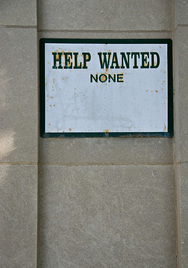I swing my leg up and in, on to the seat, and I’m off. Reverse left, and then straight, two turns left and I’m gone, my shell left empty and my flank left exposed.
The first mile is all downhill, past flat breads and cones, the pond hiding fish and the house someone rescued with backache and pride. On the left is a speed trap that everyone knows, except for the strangers and the outcasts and the old. Before it, the schoolyard that I’ve never seen used, and the playground that sits empty and the doors that always seem closed. But I know that’s just illusion, that I’m missing the scene, my mornings start too early, my days end too late.
Across the 140, through four-corners I roll with the line of committed, commuted, employed and somehow assigned, as we snake our way forward towards labors and mines, of work men and women just trying to get by. Our misery is common and our goal is unclear, but it’s safe if you’re a bettor, to bet it’s not near.
On the right is the old home, where once suffered the frail. Abuse was their keeper, but she lives now in jail, and they sleep now with heartaches, and memories of youth. They sleep with the knowledge that their time will soon pass, and that no one will notice, and that no one will chance a kind word or soft touch, a sly wink, or a laugh.
Down the road on the left, sulks the house that wears sadness, wreathed in shadows and dew and the stench of the madness, where one sad life ended and another began. A cop did his duty there, and shot a man dead. The gossips say he’d died long before, a victim of the pain and the sorrow in his head. There were no survivors to comfort, and no credits to roll. The story goes on, and the road takes its toll.
Up the next hill I push harder, my engine and clutch groan, weary of efforts that seem so forlorn, misguided, ill directed, ambitious and mean, a cruel task to ask, for so small a machine. Third gear, then to fourth, back to third once again, we laugh past the clubhouse stuffed with game cocks and hens, where the middles put on airs, swing their racquets and check their stance, posed silly in the hills of this drab little burgh.
The road flattens out where the borderlines meet, where creeks steam through thickets and the launching pad ends, where the tree tunnel starts and gas pedals descend, the rush to escape, the rush to succeed.
To the right lie the waters of the ugly dwarf pond, nameless to me, but not all it would seem. On occasional mornings in occasional light, occasional anglers cast hope from its sides. My daily rite is not theirs, but to wonder what’s lore, what stories swim it’s currents and lie on its floor. But as fast as I’m on it, I’m beyond it again. Another mile traveled, forgotten, and I’m bound for the bend.
Up ahead stands the smokestack that scars the great scene, the bucolic old barn framed with saw grass and weeds, the fine lake soiled with paint and with traces of lead, and the noble old tree that mushrooms leaves from the dead, it’s branches like talons clawing up at the sky, like fireworks exploding to a chorus of screams, in an updraft of lost hope, expectations, workmen’s dreams. The grasp that consumption always exceeds.
And now it approaches, the bend in my road, the point I surrender to life’s cruel jokes. “This is just temporary. This is just for a while” …and the while turns to ever, sliding into the curve.
Beyond it the lessons of lives lived more blessed. Rewarded with riches, and settings, and charms, the fragrance of blossoms and the peace of old farms where horses are raised, groomed and sold for their presence. Blood blue-rich with oxygen, nostrils filled with their essence. Houses of stature and dignity and grace, rolling pastures and fields, we are ants marching past them, we are rats in the race, which, as it happens, not one of us wins, that’s not what we’re there for, but to run it again.
Tomorrow I’ll awaken, untangle my bones, drag my sore spirit out and put beneath my soul, the road that transports me, and those sad ones just like me, who crawl down this byway, who live in the hole.
We’ll mine it for ore and margins and greed and stories of valor and things that we need, like spirits and food and spirit and nerve, and reasons to once more, slide into the curve.
© 2012 J. Mark Rast



 RSS Feed
RSS Feed